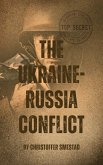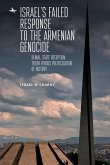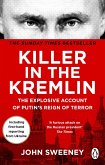This book focuses on the events that took place in late 1944 and 1945 in Croatia and Slovenia when the intensity of violence was strongest. At that time, the Communist Party of Yugoslavia (KPJ), assisted by the People's Liberation Army of Yugoslavia, the Yugoslav Army, the Department for the Protection of the People (OZNA) and the Corps of People's Defence of Yugoslavia (KNOJ) conducted organized terror not only by intimidation, persecution, torture and imprisonment, but also by the execution of a large number of citizens perceived by the KPJ as disloyal, passive, ideological enemies or class enemies. However, investigating war and post-war crimes committed by communist regime was not possible until 1990, after the democratic changes in Yugoslavia. This book is based on documents kept in the archives of Croatia, Slovenia, the UK, and Serbia. Many of them, especially those in Croatia, recently became available to the public, which makes them extremely valuable source of data to the academics and students in this field and which shed new light on these historical events.°The Communist Party in the former Yugoslavia was an organization which used all available means to seize and keep power, including terror and mass murder, especially between autumn 1944 and summer 1945 when mass killings occurred across the country. However, in the Soviet sphere of influence, investigating war and post-war crimes committed by communist regimes was not possible until 1990. This project not only covers new ground in the research into communist war crimes at the end of and after the Second World War, but also contributes to coming to terms with the past in the successor states of Yugoslavia by studying one of the most controversial episodes in the contemporary history of the Balkans.°Since the October Revolution, when for the first time in history a Marxist party seized state power, communist regimes have influenced the lives of more than a billion people, caused millions of deaths and violated the human rights of countless people. However, in the Soviet sphere of influence and in Yugoslavia, investigating war and post-war crimes committed by communist regimes was not possible until 1990, after the democratic changes in Eastern Europe. Resolution 1481/2006 of the Council of Europe Parliamentary Assembly strongly condemned human rights violations committed by totalitarian communist regimes and the 2008 Prague Declaration on European Conscience and Communism stated that these crimes were comparable with Nazi crimes but, very few people have been tried for committing such crimes. Nevertheless, 25 years later, in former Yugoslav republics this topic is still a matter of political and scientific debates.
Dieser Download kann aus rechtlichen Gründen nur mit Rechnungsadresse in A, D ausgeliefert werden.









